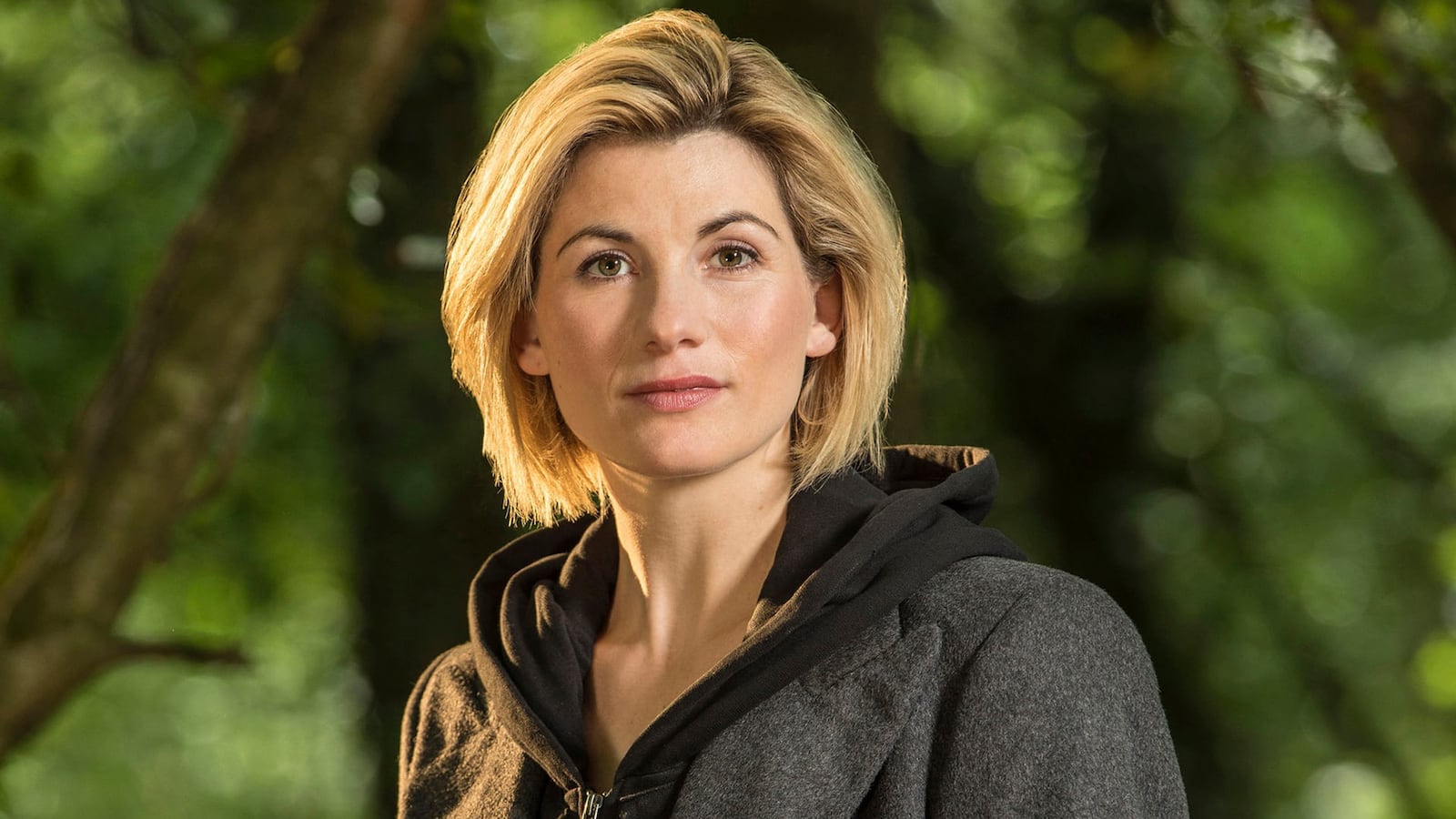Fans are angry that a magic alien on a TV show, portrayed as a white man for the last 300 or something years, will now be portrayed by a (white) woman. I’m not going to discuss Doctor Who (the name of the series, not, confusingly, the character) nor the nerdy details about why it makes canonical sense. Others have done so and know it better than I. But there are larger issues in the recurring backlash to diversity and progress that must be addressed.
What so many cultural critics have long understood is that reactions to forms of fiction reflect other aspects of someone’s beliefs. Fiction isn’t a compartmentalized space that leaves no impact on the real world, or arises ex nihilo. And a person’s discomfort at seeing a woman or a person of color in a leading role can often be an indication of unchallenged, toxic ideas they harbor about such people.
They might not consider themselves bigoted, racist, or sexist, but such ideas often are—even if the Not Bigots operate perfectly amicably with groups whose representation they oppose. I think a good rule of thumb is this: If your knee-jerk reactions to something as innocuous as a TV show casting announcement align with the manosphere or white supremacists, those ideas are probably worth, at the very least, reflecting on.
Especially when a large media platform is involved.
While many websites and publications celebrated the beloved Doctor Who’s first-ever casting of a female lead, others proceeded to try and slut-shame Jodie Whittaker, the English actress cast as the 13th Doctor. As The Guardian reports, British tabloids the Sun and Mail Online published nude photographs of Whittaker in articles covering the casting announcement.
The tabloids took a new, important role that helps add to the growing list of women-led TV shows and films as an opportunity to publish photos of Whittaker “appearing naked or topless in previous acting work.”
God forbid readers forget precisely what they, and so many others, think about women.
Male actors almost never need worry about this kind of coverage. (Do you want to guess how many previous Doctors were subjected to slut-shaming when their casting was announced?)
But the franchise’s first leading woman instantly had her appearance used against her. This is straight from the misogynist’s handbook—ask any woman who’s been the target of abuse, harassment campaigns, or rape threats online and has had nude photos published as so-called revenge porn amid obsessions over her sex life.
If this sounds familiar, it should. A whole host of female celebrities were hacked and slut-shamed online in 2014. A more recent example is the alt-right’s attack on Leslie Jones. The Saturday Night Live star was cast in a role originated by men in the 2016 reboot of Ghostbusters. She became a target of (racist) hatred and had private nude photos leaked online.
While it’s true that Whittaker, unlike Jones, willingly posed for these depictions, she didn’t willingly sign on for her work to be used in an attempt to slut-shame her. Those tempted to point the finger at the target, instead of the ones trying to degrade her, run the risk of victim-blaming.
Of course, this is not limited to Whittaker or her casting. It’s clear what The Sun’s message to women in general is: Know your place. When a woman strives beyond what The Sun and other similarly conservative, male-orientated spaces deem acceptable—motherhood and objectification—this is how they respond.
Whether or not you think a person’s appearance matters, publications like these and their readers certainly do and want to reinforce that. And what better way than to use a woman’s own images so they can hide behind the usual defense: “What did you expect?”
By constantly opposing progress in diverse casting—in terms of gender as well as race—we reinforce the idea that white men and their tastes take priority above all. Conservative spaces like The Sun would, of course, prefer that.
How we engage with these concepts and how they result in wave after wave of predictable backlash is important to dissect.
White men’s stories are often seen as universal in a way women’s, or those of people of color, are not. With Doctor Who, the backlash against Whittaker’s casting has largely hinged on the fact that until now, the Doctor has always been a man.
Just look to former Doctor Who Peter Davison’s bemusing line about how Whittaker’s casting means “the loss of a role model for boys.” (Being a woman does not preclude someone from being a role model for either gender, believe it or not.)
But that’s exactly the problem: White male supremacy is often not seen for what it is, but rather as what is “expected,” or the norm.
This is why opposing white supremacy feels so overdramatic to many, even to those who are not white men, as feminist critic Teresa Jusino and others point out. To oppose aspects of bigotry or racism is to challenge the status quo. And when that happens, people tend to get defensive.
Look at the reactions to Oscars So White, the casting of Idris Elba as a Norse god in Thor, the inclusion of a black Stormtrooper in a Star Wars film, or the Fantastic Four with a black Human Torch. Sure, in many of these cases, blatant racists led the outcry, but many self-identified Not Racists claimed their concerns had more to do with source-material “accuracy” or other such arguments.
But again, this is a reactive, knee-jerk response to challenging the status quo.
This is why sites like The Sun publish nude photos of women trying to get ahead; it’s why people of color get sent death threats for suggesting other races do exist and deserve recognition in Hollywood.
The fact is fiction, particularly popular fiction, often reflects large parts of society, reinforcing beliefs and re-establishing that this is the way things are.
If you feel uncomfortable about casting choices that deviate from the white male-oriented norm, recognize this is what uprooting long-held beliefs feels like. Use it as a chance to interrogate your own biases. It’s better to challenge yourself in the safer arena of fiction than reality, though, as we noted, the two do reflect each other.
This way, we can hope the world will become less tolerant of reactions like The Sun’s, or any other internet troll targeting women for the crime of daring to exist.






